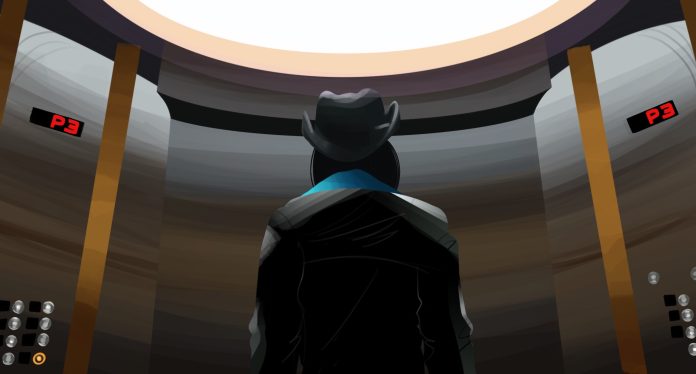Andy Knox
Contributing Writer
The enigmatic and dynamic cult artist Mitski just released her sixth studio album, Laurel Hell. The Japanese American genre-bending singer-songwriter currently residing in Tennessee has a style that is difficult to pin down, with her often switching from unplugged to synth-pop to distorted punk rock within a single album. The most common elements underpinning her music are her poetic lyrics, buttery voice, impressive range, and melancholy. Her discography is often referred to as “sad girl music,” but Mitski herself rejects the term, calling it “reductive and tired” in a recent interview.
Laurel Hell has a more consistent sound than any of her previous work, each track backed with deep, smooth, and powerful synths. Both the lyrics and instrumentals consistently evoke feelings of melancholic nostalgia. Lyrically, Mitski is a powerhouse as always, artfully articulating her obscure sorrows in both sensual and abstract ways.
The track “Valentine, Texas” begins the album with an ominous, echoey synth soon joined by dark lyrics about introspection, a scary inner self, and the blurred line between acting like who you are and becoming who you are through your actions. The second half of the track picks up in energy, bringing in drums, violins, piano, and some magical-sounding keyboards.
The song sounds steady, industrious, and inspiring, but it has a deep twinge of depression. In the second and final verse, Mitski sings about driving to Valentine, Texas. There, she wistfully hopes that her problems will leave her as if they are the present mountainous scenery floating away like clouds. The sad irony being that mountains will never float away.
“Working for the Knife” is another beautifully worded track, this one about feeling uninventive and held down by her brand of sadness, worried that she will forever procrastinate a change in style or mindset. In a Kate Bushian fashion, the singer’s smooth voice is backed by a manic and overwhelming, yet somehow peaceful, amalgamation of different kinds of guitars and keyboards and what sounds like an anvil pounding in rhythm. Between the verses, the song fittingly features a recurring motif of a synthetic horn that sounds beautiful but like it is crying out for help.
“Heat Lightning” is a slow, melancholic track about helplessness that begins with a steady, echoey, marching rhythm that eventually evolves into a fuller, more sentimental and loving sound. The instrumentals nicely accompany a lyrical shift as Mitski laments her insomnia-born anxiety in the first verse, going on to indulge in it and make the most of the new perspective brought on by intense sleepiness. Like most of the album’s tracks, the instruments are carefully crafted to create a perfect picture of the song’s subject.
Despite a somber topic, “The Only Heartbreaker” is a fast-paced danceable bop. The lyrics, though there are few, follow Mitski in a crumbling relationship, where she feels solely responsible for its problems. Her partner is unproblematic and forgiving of her mistakes but fails to adequately address her problems and make the relationship work. The lyrics and voice subtly express sarcasm and frustration as a result of constantly taking the blame. She can accept the “bad guy” label, but she knows there is a reason she acted however she did.
Though it may be her most consistent record, Laurel Hill has a few misses. “Everyone” was close to yet far from greatness, with Mitski deciding to have a single, annoying buzzing sound constantly playing in the background and a dippy percussion loop that sounds like a pre-set drum beat on a cheap electric keyboard. In the extremely slowly-moving “I Guess,” Mitski sings with a slightly raspy, distorted, droning voice that grates against the ears.
On the other hand, most of the songs were great. “Love Me More,” “Should’ve Been Me,” and “That’s Our Lamp” are all groovy, bouncy bangers with creative instrumentation and lyrics laden with vivid imagery. Even if some tracks have a less immediately enjoyable sound, Mitski is a brilliant songwriter who would have made an amazing poet had she not been musically talented. One would be hard pressed to find any weak lyrics on this project. This quirky, cowboy-inspired, synth-heavy indie rock album with a sad girl smack marks a pleasant first time for Mitski to stick to a single sound for a whole album.
Rating: 7/10
Though nothing is quite like Mitski, here are a few suggestions for listeners who want to listen to an album with common elements. Leading anti-folk band The Mountain Goats’ The Sunset Tree features songs with beautiful storytelling and imagery to which Mitski fans are accustomed. Hounds of Love by Kate Bush also features storytelling and is layered over danceable, creative instrumentation. I would also recommend anything by Orville Peck, a country artist who shares a distinct sound of echoey, melancholic, old western retro-futurism.











